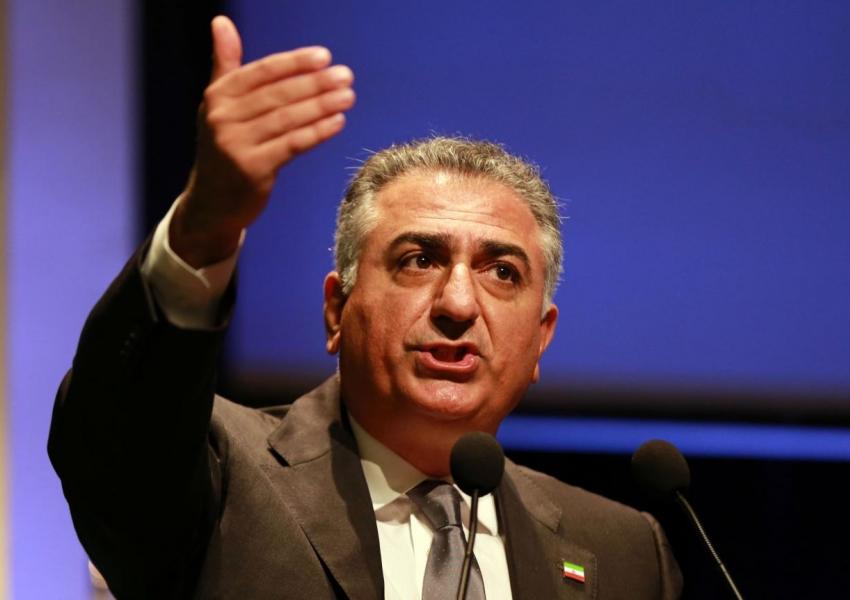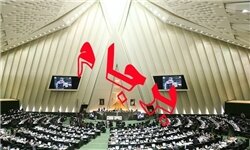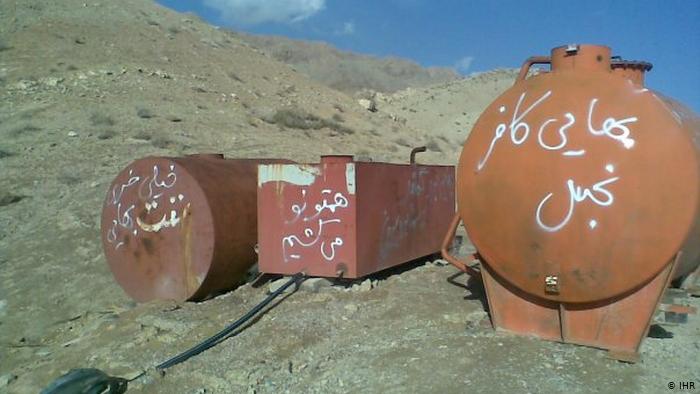
Vaccinations at the Expense of Dignity
The editorial of Aftab Yazd focuses on the Iranian government’s inability in getting people vaccinated which has resulted in large groups of Iranians rushing to neighboring countries to receive vaccines. The editorial calls this insulting and unacceptable.
The rampant spread of coronavirus and the start of the fifth wave (Delta variant) which is more dangerous and more contagious have made people more anxious. Even though the history of making vaccines goes back to almost 100 years ago in Iran, the vaccination campaign should not be stopped while waiting for the manufacture and distribution of domestic vaccines. Now, paying billions of tomans in advance to pharmaceutical companies to produce vaccines is neither scientific nor logical. Meanwhile, the lack of a coherent policy in importing vaccines may result in bitter and deadly consequences on an unprecedented scale in the world.
What we are witnessing now is fake vaccines sold on the black market for millions of tomans, vaccines gone missing, and many Iranians are going to neighboring countries hoping to receive vaccines. These days Iranians are rushing to Armenia to get vaccinated which has created an upsetting and insulting situation. Persian-speaking television networks show video footage of Iranians who are sleeping across the border waiting to enter Armenia, wandering the streets of Yerevan, the capital of Armenia, or being insulted in vaccination centers there. Elderly Iranian people are sitting in Yerevan’s streets which is so insulting to all Iranians and is against Iran’s cultural and national values.
And all of this in Armenia whose entire population is less than one of Iran’s provinces! This is sad and humiliating. If such a large number of people enter or leave a country, it will immediately draw the attention of its government. But no such thing happened in Iran.
On the other hand, there are tours that advertise going to Turkey for getting vaccinated, and some travel agencies market trips to the UAE and Thailand for the same reason.
Incompetence Is the Reason for Power Outages
The editorial of Tejarat, penned by the head of the Parliament’s Economic Commission Mohammad Reza Pour-Ebrahimi, blames Iran’s Energy Ministry for the recent extensive power outages all over the country.
Everyone has been looking for a culprit in the issue of extensive power outages for a while. It was announced that bitcoin mining caused the outages, but blaming bitcoin mining is nothing but a cover-up for the incompetence of the Energy Ministry and its flawed policies. During eight years of Hassan Rouhani’s government, there has been no investment in power plants, and the issue of bitcoin mining is just an excuse, which is not acceptable.
Today, more than 55 percent of electric power is produced by the private sector, while the Energy Ministry has devised flawed policies relating to investment in the power industry. If the private sector’s capacity is to continue and increase, the private sector needs to be supported.
One of the policies of the Energy Ministry in these years has been price regulation. When the cost of production is higher than the price which the producers can charge, no power plant can continue its activities. And when the power plants cannot work, how can we expect new power plants to be established to produce the required electric power?
Currently, the government owes more than 35,000 billion tomans to private power plants. This money hasn’t been paid for years, so how can we expect these companies to stand on their own feet?
The statistics show that during the past five years, no new power plant has been added to the country’s capacity, while in these years, the consumption of electric power has been on the rise due to the increase in population growth. Obviously, this will create challenges for providing electric power to the people.
Why Is the Country Moving Backwards Instead of Making Progress?
The editorial of Setareh Sobh blames flawed policymaking in Iran for the decline in people’s living conditions.
Rulers in advanced countries always keep weighing the situation and try to remove the threats and create opportunities. The outcome of this process is economic growth, welfare, justice, and increasing citizens’ purchasing power. Why isn’t it like this in Iran?
In advanced countries, rulers try to make tomorrow better than yesterday for their people. But it is not like this in Iran, as people’s living conditions get worse day by day. Older people remember that in 1976, there were widespread power outages in Iran. This made people unhappy and the opponents of the Pahlavi government took advantage of the outages and started protesting against the Shah.
After the 1979 revolution, due to the 8-year Iran-Iraq war, there were widespread power blackouts, but as the war ended, the governments of the late Hashemi Rafsanjani and Mohammad Khatami could overcome the power shortage by making foreign and domestic investments possible, as well as bolstering infrastructure.
When the “hardline principlists” eliminated their rivals and took control of the Parliament and the government, they adopted an aggressive policy and couldn’t reach an agreement with the West over the nuclear issue. Two unfortunate things happened simultaneously: the UN Security Council issued six resolutions against Iran and sanctions on oil were toughened.
The next step was when Donald Trump took office in America. For a year, he was after negotiating and reaching a compromise with Iran. But the Iranian side refused to do so. In 2018, Trump pulled out of the nuclear deal with Iran which has had a lasting impact on the Iranian economy: oil was sanctioned, forex revenues dropped, and investment in infrastructure became impossible. All these have resulted in many problems, including extensive power outages these days.
The root of all these problems is in policymaking. Iranian President Hassan Rouhani recently pointed to the power outages saying that “we can approve the FATF [bills] and lift sanctions this week, if we decide to.” If the sanctions are not lifted and the FATF bills are not approved, nothing will change. When obstacles are created on the path of progress and development, the country will move backwards, instead of making progress.
Incompetence in the Auto Industry
The editorial of Kasb-o-kar focuses on the deteriorating condition of the car market and the auto industry in Iran, stressing that the government must stop getting involved.
We have witnessed fluctuations in the car market in recent days. There has been no trade in the car market for some time. On the other hand, the dollar’s price has increased because of the unpromising news about the nuclear talks in Vienna, which will naturally impact prices in the car market. The Vienna talks have turned into a long, tedious process which has frustrated the markets in Iran.
Along with the uncertain fate of implementing the nuclear deal, there is also the issue of the FATF. If the nuclear talks come to fruition, there is still the issue of the FATF about which no comprehensive decision has been made yet.
Like all markets, the car market has an eye on international deals. If the next government is intent on bringing order to Iran’s economy, which the car market makes up a large part of, it must be ready to make big decisions about international deals.
The government must distance itself from pricing and regulating the market and allow prices to be determined competitively by the market itself. The market must be subject to financial regulation and the structure of the banking network must change.
Furthermore, the government must distance itself from plans that are not profitable. When the auto industry produces only 20,000 vehicles, it is not profitable and creates inflation. The next government must distance itself from populist policies as well, and by cooperating with the international community and financial monitoring systems, it must bring order to the country’s economy.
The auto industry, as a result of the government’s frequent interventions, has become an example of incompetence and corruption due to government mismanagement. Flawed policies, inexperienced mangers, wrong investment decisions, contracts that only focus on the domestic market, and the total monopoly over managing markets have all ended up in creating a complicated situation.
Iran’s economy has only one expectation from the next government: it should let go of the markets and industries. The markets have always been the place where consumers and suppliers come together and the interests of both are protected, so the government doesn’t need to interfere in the markets.

Reza Pahlavi: Workers’ Courageous Strike, People’s Growing Protests Signify National Solidarity in Civil Disobedience

“People want to be citizens, not Khamenei’s slaves and subjects,” said the son of the former Shah of Iran against the backdrop of extensive strikes and protests in the country. In a recent message, Prince Reza Pahlavi noted that the Iranian people’s growing protests and strikes for obtaining their most basic rights and needs are the manifestations of an “unprecedented national solidarity in civil disobedience.”
Referring to the protests staged by workers in refineries and power plants, farmers, stockmen, and retirees, Pahlavi stated that they rightfully chant slogans against Ali Khamenei and his incompetent government.
“Our goal is clear and the path to gain it is even clearer: strikes, protests, boycotts and refusal to cooperate with the Islamic Republic regime,” he asserted. Pahlavi also urged that Iranians should raise their voices and strengthen their will more than before to take back the country from the Republic system.
Last week, Prince Reza Pahlavi met with the leaders of 50 Jewish organizations in the United States, urging them to mount pressure on the Iranian government while supporting the public strikes and protests.
Meanwhile, the strike of thousands of workers at Iran’s oil, gas and petrochemical industries – more than 100 companies in 12 provinces so far – has entered its fourth week.
Besides, ILNA reported that 105,000 contract and temporary workers at the National Iranian Oil Company (NIOC) have launched an online campaign, calling for the removal of contractors and intermediary companies which provide a workforce for state-owned organizations. The contract workers also demanded to receive the same salaries, bonuses and benefits as those of their permanent co-workers.
An increase in wages, the observance of health standards at workplaces, the improvement of safety regulations and the rehiring of dismissed workers are among the other demands of these workers.
Zarif’s Final Report to the Parliament: Fate of the JCPOA Entrusted to Raisi

Iran’s Foreign Ministry submitted its final report to the Parliament, expressing hopes that talks for reviving the nuclear deal (JCPOA) will come to fruition in the early days of Ebrahim Raisi’s government.
In a letter attached to the 22nd and final report by his ministry, Foreign Minister Mohammad Javad Zarif emphasized that in the current talks conducted by Hassan Rouhani’s government, both sides have come close to a “framework for possible agreement over lifting sanctions.”
According to the report, in case of reaching an agreement to revive the JCPOA, in addition to lifting a main part of the oil and banking sanctions, “more than a thousand private individuals and legal entities, as well as institutes under the aegis of the supreme leader, will be removed from the US sanctions’ list. The Islamic Revolutionary Guard Corps (IRGC) too will be delisted from terrorist groups.”
The Foreign Ministry also asserted that in the case of reaching an agreement, the level of uranium enrichment will be reduced to “maximum 3.67 percent” and Iran will only be authorized to use “6,104 IR-1 centrifuges” and the advanced centrifuges must be stored.
Prior to this, Iranian President Hassan Rouhani had made promises again and again that by the end of his government’s second term, the sanctions would be lifted, but the new report by his foreign minister shows that the fate of the nuclear talks and the sanctions have been entrusted to Ebrahim Raisi’s government.
Iran and member countries of the nuclear deal have held six rounds of talks in Vienna to revive the JCPOA, but these talks haven’t come to fruition as yet.
US Secretary of State Antony Blinken recently underscored that Iranian Supreme Leader Ali Khamenei must decide about the remaining differences in the nuclear talks in Vienna.
However, the Foreign Ministry’s recent report emphasizes that the Vienna talks have been conducted in exact accordance with Iranian supreme leader’s guidance.
The Iranian government says that it will return to full implementation of its nuclear obligations only if America lifts the sanctions, but American officials have demanded that Iran must fully implement the JCPOA’s provisions before the sanctions are lifted.
“Iranian Regime Should Be Called to Account for Its Hate Campaign Against Baha’is” Says BIC

The International Baha’i Community (BIC) has urged the world to call the Iranian government to account for its “hate campaign” against the Baha’is, saying the government’s propaganda against this religious minority has taken a new course, causing new concerns for them.
The hate campaign against the Baha’i community of Iran – which is now more than 40 years old – has not only increased but has become more complicated than before, said the BIC in a recent statement.
The current strategy of the Iranian government is to “dehumanize” the Baha’i community on more than hundreds of websites, Instagram pages, Telegram accounts and Clubhouse rooms, added the statement.
According to the BIC, Iranian’s propaganda machine disseminates hundreds of thousands of lies among millions of Iranians, portraying Bahaism as “unclean” and “an enemy of religion and faith.”
One of the latest instances of persecuting the Baha’i community is that the government has forced this religious minority to bury their dead relatives in the mass graves of the political prisoners executed in 1988.
Not to mention that arresting and imprisoning Baha’is in different cities of Iran is on the rise. For example, Dorsa Kamali and Sina Kamali who had been arrested by security forces in June and detained in an unknown place without any reasons are currently under pressure to make coerced confessions. The Human Rights Activists News Agency reported that these two Baha’i citizens have informed their families during short phone conversations that they their physical and mental health have been compromised since their arrest.
The Iranian government has systematically persecuted Baha’is – one of the largest religious minorities in the country – since the 1979 revolution, depriving them of their most basic rights. Iran’s Constitution does not recognize the Baha’i faith.
Iranian Government Launches Matchmaking App

Amid the economic crisis, the coronavirus pandemic and widespread poverty, Iran has unveiled a matchmaking app to promote its own polices about increasing the population and encouraging childbearing.
The matchmaking app, called “Hamdam” [i.e., mate], was unveiled in the presence of Parliament Speaker Mohammad Bagher Ghalibaf.
Such applications exist in other countries as well, and it is not the first time that technology is used in Iran for matchmaking and “temporary marriages” [known as “sigheh”]. But it is the first time that such a state-run application has been launched backed by the Parliament and the supreme leader’s office to promote marriage among the youth.
Unveiling Hamdam is in line with the guidelines of Iranian Supreme Leader Ali Khamenei for increasing the population and promoting childbearing, but no step has been taken to resolve the livelihood issues and problems the Iranian youth are facing.
In identical foreign apps, the applicants register their personal information, while there is a network for the applicants to give a list of their “references.” Hamdam claims that in less than a few seconds, it can propose suitable matches.
But cyber security experts are concerned about the privacy of applicants and the government access to their personal information in Iran. In Hamdam, the applicants must use their true identities, which makes it possible for the Iranian government to access individuals’ private information.
Hamdam is funded by the Islamic Propaganda Organization.
In the meantime, along with far-reaching efforts in the country to increase marriage and childbearing, “hardline” daily Kayhan has made some suggestions in this regard, urging that bachelors must be encouraged to get married.
In an editorial entitled “A Crisis Called Negative Population Growth,” Kayhan has talked of the damage caused by the halt in Iran’s population growth.
This “hardline” daily continues to criticize the changes in people’s lifestyle, saying “compared to 40 years ago, our view towards marriage has changed.” Then it goes on to criticize Iranian “celebrities” for promoting an unmarried lifestyle, blaming them for desecrating the institution of marriage.
